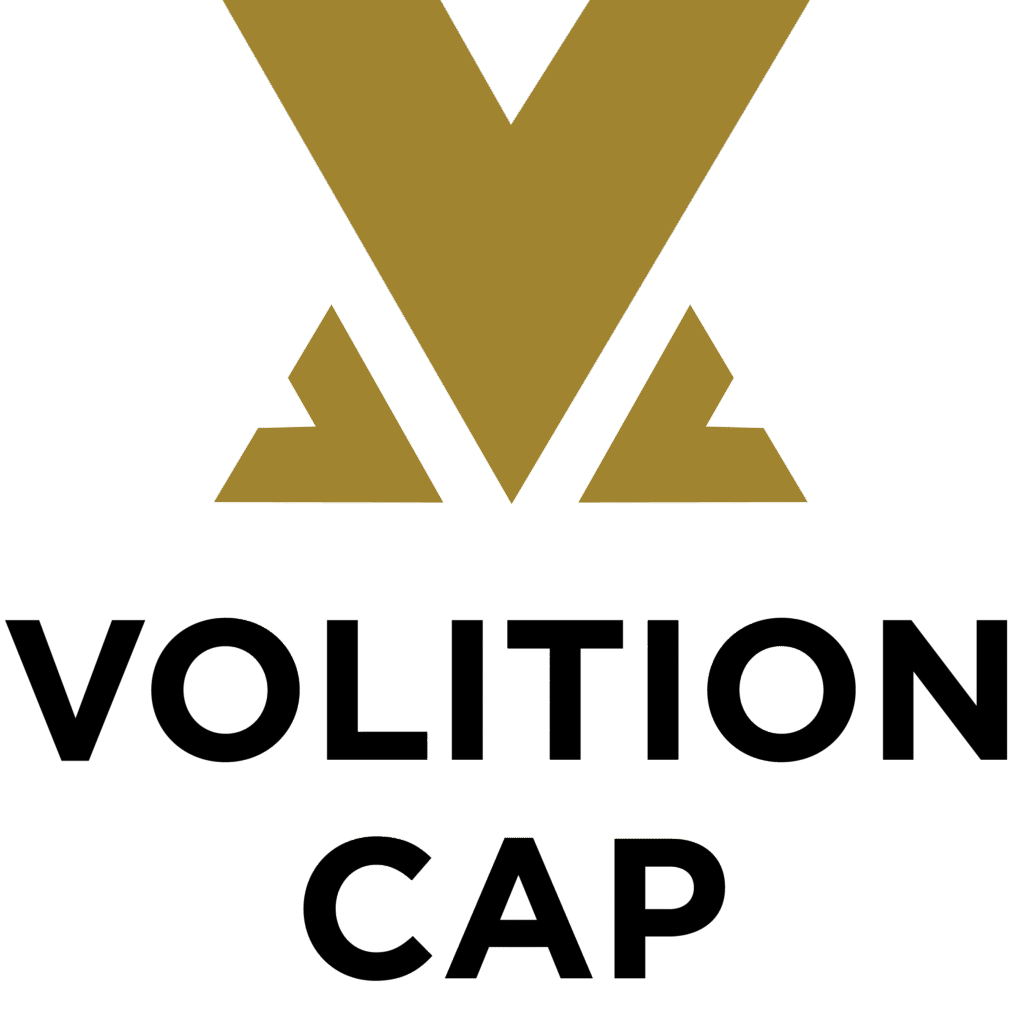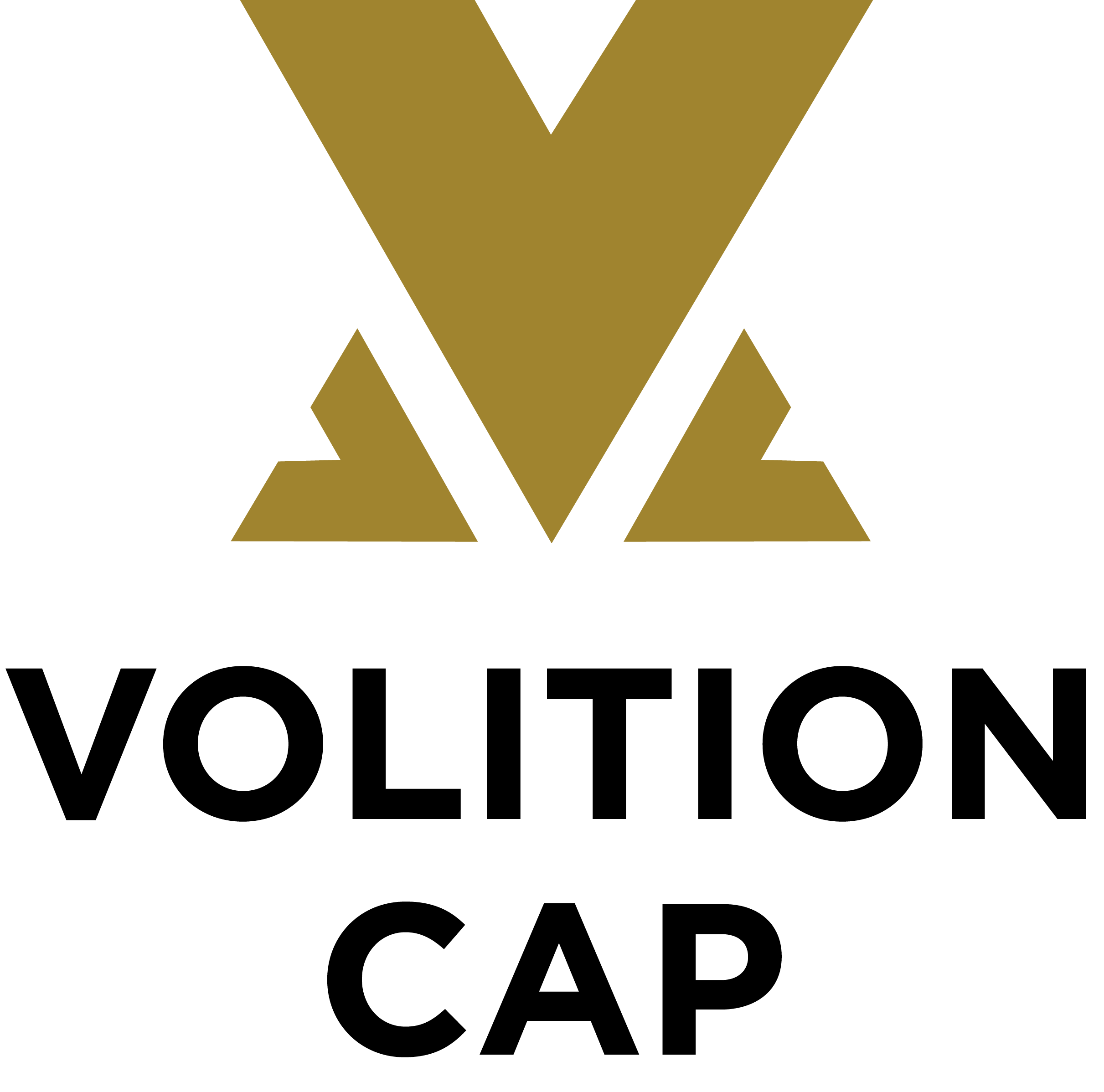Key Investment Trends & Economic Insights – April 2025

Welcome to the April edition of Volition Cap’s Market Intelligence Report. This issue covers key economic shifts, investment signals, and regional developments shaping the markets. Our focus remains on delivering clear, data-backed insights to help investors make informed decisions in today’s changing environment. Global Economic Overview The global economy is showing cautious momentum. Consumer demand is steady, and financial conditions have improved. The IMF now projects global growth at 2.7% for 2025, while easing inflation gives central banks more room to hold off on further tightening. United States The U.S. economy showed signs of softening in March. While inflation eased to 3.4%, recent data points to slowing consumer spending and rising credit stress. The Federal Reserve held rates steady but struck a more cautious tone, with markets now expecting potential cuts later in the year. U.S. equity markets, especially in the tech sector, experienced pullbacks following earlier rallies, as investors reassessed earnings outlooks and macro risks. Eurozone The Eurozone is seeing signs of a slow rebound. March’s manufacturing PMI hit 47.8, its highest in nearly a year. But inflation, at 2.6%, is still sticky—keeping the ECB cautious about easing. Consumption remains subdued amid elevated borrowing costs. Commodities Noteworthy Global Developments – March 2025 Local Economic Insights Nigeria is still facing pressure from inflation, currency volatility, and FX reserve depletion—but some sectors are holding steady. Monetary Policy The CBN hiked its MPR to 24.75%, the highest in decades. Inflation hit 32.5% in March, mainly driven by food and fuel costs. The aggressive stance signals a shift to restore confidence in the naira. Foreign Exchange & Reserves Capital Markets Private Sector Outlook Investment Opportunities in African Markets USD-Denominated Instruments Although U.S. markets have seen recent pullbacks, particularly in tech stocks, USD-denominated investments still serve a vital role for African investors facing ongoing currency risk. With local currencies like the naira remaining volatile, assets such as Eurobonds, offshore fixed deposits, and USD money market funds help preserve capital and reduce FX exposure. That said, investors should be selective, given short-term weakness in the U.S. economy and uncertain timing of Federal Reserve rate cuts. Fixed-Income Securities Yields on Nigerian Treasury Bills, FGN bonds, and top-tier commercial paper remain attractive, especially for investors seeking liquidity and high short-term returns. Elevated interest rates offer a cushion against inflation, although real returns remain narrow for ultra-conservative assets. For institutions or funds with local obligations, these instruments remain core holdings. Alternative Investments Interest in digital assets continues, with institutional demand for Bitcoin ETFs growing despite recent price corrections and regulatory scrutiny. These instruments offer portfolio diversification but come with volatility. Investors should size exposure based on risk tolerance and long-term view. Infrastructure Funds Pan-African infrastructure vehicles remain compelling for long-term capital. Sectors like energy, transport, and digital infrastructure are seeing continued deal flow, often backed by multilateral finance and PPPs. While funding costs are higher, the structural growth story remains intact. Closing Thoughts March reinforced one thing: stay flexible. The global backdrop is improving, but risks remain, especially for frontier markets. Smart positioning, asset diversification, and risk management are key. At Volition Cap, we focus on identifying stable returns across Africa and beyond—from income-generating bonds to high-conviction alternatives and infrastructure projects. Want to review your 2025 strategy? Talk to us about reshaping your portfolio for more resilient outcomes. Stay informed, intentional and invested. Sources: Forbes, S&P Global, AFX Live, The Whistler, Nairametrics
How to Develop a Personalized Investment Plan: A Guide for African Investors

Investment planning is the foundation of financial success. For African investors, creating a personalized investment plan is key to building long-term wealth, navigating economic fluctuations, and taking advantage of emerging opportunities across the continent. Whether you’re a seasoned investor or just starting, this guide will help you develop a strategy that aligns with your financial goals. Step 1: Define Your Financial Goals Investment planning begins with setting clear financial objectives. Do you want to build generational wealth, save for retirement, or generate passive income? Your goals will determine your investment strategy and risk tolerance. Short-Term Goals (1–3 years) Medium-Term Goals (3–10 years) Long-Term Goals (10+ years) Step 2: Assess Your Risk Tolerance Every investor has a different risk appetite. Risk tolerance depends on factors such as age, income level, investment knowledge, and financial responsibilities. A well-balanced portfolio should reflect a mix of these assets based on your risk comfort level. Step 3: Understand Investment Options in Africa Africa presents unique investment opportunities across different asset classes. Key sectors include: Step 4: Diversify Your Portfolio A strong investment plan includes diversification to reduce risk. Spread your investments across different asset classes, industries, and geographic regions. For instance, you can mix local and foreign investments to hedge against currency fluctuations. Step 5: Consider Professional Guidance Consulting with a licensed investment advisor or fund manager like Volition Cap can help you make informed decisions. Experts provide insights on market trends, asset allocation, and tax-efficient strategies. Step 6: Monitor and Adjust Your Investment Plan Regularly Investment planning is not a one-time activity. Market conditions change, and so do your financial goals. Regularly review your portfolio and make adjustments where necessary. Conclusion A well-structured investment plan is essential for wealth creation and financial security. By setting clear goals, understanding your risk tolerance, diversifying assets, and seeking professional advice, African investors can navigate the complexities of investing while maximizing returns. At Volition Cap, we specialize in helping investors craft personalized strategies that align with their financial aspirations. Ready to start your investment planning journey? Book a Session now!
The Top Asset Management Companies in Africa: Who’s Leading the Pack?

Africa’s financial landscape is evolving rapidly, with asset management companies playing a crucial role in wealth creation, institutional investments, and economic growth. Whether you are an investor seeking portfolio diversification or a business looking for professional fund management, knowing the leading asset management companies in Africa can help you make informed decisions. This article highlights top-performing asset managers on the continent, their key services, and what sets them apart. 1. Volition Cap (Pan-African) Volition Cap is a fast-growing asset management and investment firm focused on unlocking Africa’s potential. With a strong emphasis on alternative investments, private equity, and high-yield opportunities, Volition Cap helps investors access Africa’s thriving economic sectors. Key Services: 2. Allan Gray (South Africa) Allan Gray is one of the most respected asset management companies in Africa, with a strong presence in South Africa, Namibia, and Botswana. Founded in 1973, the firm is known for its long-term investment approach and client-centric philosophy. Key Services: 3. Coronation Fund Managers (South Africa) With assets under management (AUM) exceeding $40 billion, Coronation Fund Managers is a powerhouse in the African asset management industry. The firm offers a mix of local and global investment solutions for individual and institutional investors. Key Services: 4. Sanlam Investments (South Africa) Sanlam Investments is a subsidiary of the Sanlam Group, one of Africa’s largest financial services companies. It offers a broad range of investment solutions tailored to retail and institutional clients. Key Services: 5. African Alliance Asset Management (Pan-African) Operating across multiple African countries, African Alliance Asset Management has established itself as a trusted name in investment management. The firm manages assets for pension funds, insurance companies, and institutional investors. Key Services: 6. Old Mutual Investment Group (South Africa) Old Mutual has been a financial giant in Africa for over 175 years. The company’s investment division, Old Mutual Investment Group, focuses on sustainable investing and delivering long-term returns. Key Services: Conclusion Africa’s asset management industry is growing rapidly, driven by increasing demand for professional investment solutions and wealth management services. Whether you’re looking for a firm with a strong local presence or one with international reach, these top asset management companies in Africa offer diverse investment opportunities.
How to Choose the Right Investment Fund for Your Goals as an African Investor

Selecting the right investment fund is a crucial step for African investors seeking to build wealth while effectively managing risk. With a broad range of options available, from mutual funds to private equity, making an informed decision requires a clear understanding of financial goals and market opportunities. This guide explores investment funds for Africans and how to choose the best one to align with your objectives. Defining Your Investment Goals Before committing to an investment fund, it’s important to clarify your objectives. If your primary goal is long-term wealth accumulation, equity funds and venture capital present promising opportunities. For those seeking a steady income stream, fixed-income funds such as bonds and dividend-focused funds provide reliable returns. If minimizing volatility is a priority, balanced funds offer a mix of growth and stability, making them a solid choice. Understanding Investment Funds for Africans African investors have various investment funds for Africans to suit different financial goals and risk levels. Evaluating Fund Performance and Fees Assessing an investment fund’s performance and cost structure is crucial. Reviewing historical returns helps gauge consistency and long-term stability. The expertise of fund managers also plays a significant role in achieving favorable outcomes. Additionally, expense ratios and management fees should be carefully examined, as high costs can diminish overall returns. Opting for funds with competitive fees ensures better profitability in the long run. Choosing Between Local and International Investment Funds African investors must decide whether to invest in local or international funds. Investment funds for Africans that focus on regional markets allow investors to capitalize on Africa’s economic growth. Conversely, international funds provide diversification and access to mature global markets, helping mitigate risks associated with investing solely in one region. Aligning Investments with Risk Tolerance Every investor has a unique risk appetite. Seeking Professional Guidance Navigating investment options can be complex, making professional advice invaluable. Financial advisors help tailor investment strategies based on individual financial goals, regulatory considerations, and tax implications. Conclusion Choosing the right investment funds for Africans requires careful planning and a clear understanding of financial objectives. By evaluating investment options, assessing fund performance, and considering risk tolerance, African investors can make strategic decisions that align with their long-term goals. Whether investing locally or internationally, selecting the right fund can drive wealth creation and financial security.
Top 5 Sectors in the African Economy in 2024
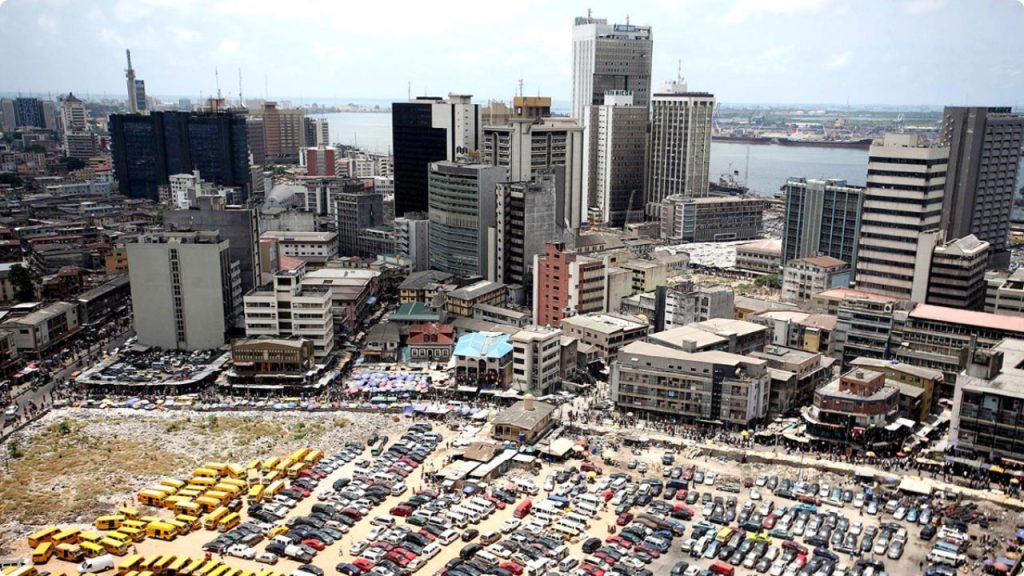
Africa continues to present immense opportunities for investors and businesses alike, driven by its dynamic economies, youthful population, and innovative industries. At Volition Cap, we believe that understanding the continent’s leading sectors is essential for making informed, impactful investment decisions. Here are the top five sectors shaping the African economy in 2024: 1. Technology and Fintech The tech industry in Africa is a powerhouse of innovation, with startups transforming how people access essential services. Fintech, in particular, is revolutionizing financial inclusion by making banking and payment systems more accessible to millions. Countries like Nigeria, Kenya, and South Africa are leading this charge, attracting venture capital and global investors. For investors, African mutual funds focused on tech offer significant potential for high returns, driven by rapid growth and scalability. 2. Renewable Energy As the world shifts towards sustainability, Africa’s renewable energy sector is booming. Solar, wind, and hydropower projects are expanding rapidly to address energy deficits and reduce reliance on fossil fuels. Nations like Morocco, South Africa, and Ethiopia are at the forefront of these clean energy initiatives. At Volition Cap, we recognize that mutual funds targeting renewable energy projects provide not only financial growth but also a chance to contribute to environmental sustainability. 3. Agriculture and Agribusiness Agriculture remains a cornerstone of Africa’s economy, employing a significant portion of the population. The rise of agribusiness—the integration of technology, logistics, and value-added products—is redefining the sector. Countries like Ghana, Rwanda, and Ivory Coast are experiencing significant growth in agritech and export-driven agriculture. African mutual funds focusing on agribusiness are well-positioned to tap into this evolving sector, combining profitability with developmental impact. 4. Infrastructure Development The demand for robust infrastructure, including roads, ports, and housing, continues to grow across the continent. Major infrastructure projects funded by governments and international partnerships are driving economic growth and trade. For investors, mutual funds targeting infrastructure development offer a long-term, stable investment option with significant growth potential. Volition Cap sees this sector as a key driver of sustainable progress. 5. Healthcare and Pharmaceuticals Africa’s healthcare sector is undergoing rapid transformation, with investments in hospitals, telemedicine, and pharmaceutical manufacturing bridging critical gaps. Countries like Egypt, Nigeria, and Kenya are leading the charge, with private sector participation driving much of the progress. Mutual funds focused on healthcare provide an impactful way to invest in Africa’s future while addressing essential needs. Why Choose Volition Cap for African Mutual Funds? At Volition Cap, we offer access to a diversified portfolio of professionally managed mutual funds that target these thriving sectors. Our expertise ensures that your investments are strategically aligned with Africa’s economic potential, delivering both growth and impact. If you’re an experienced investor or new to the market, we make it easy to tap into Africa’s dynamic opportunities. Don’t miss the chance to be part of this transformative growth. Learn more about our investment club
5 Key Steps to Effective Investment Planning for Africans in 2025

Investment planning is your roadmap to building wealth and achieving financial security, especially in Africa, where growth opportunities are abundant. Success doesn’t happen by chance; it requires a thoughtful, structured approach tailored to your unique goals and circumstances. Here are five key steps to create an effective investment strategy for 2025. 1. Define Your Financial Goals Start by asking yourself: What am I investing for? Is it to, grow your wealth, fund your children’s education, or build a thriving business? Break these goals into short-term, medium-term, and long-term categories. Clear objectives provide the foundation for smart, focused investment decisions. 2. Understand Your Financial Position Before jumping into investments, take stock of your current financial situation. Analyze your income, expenses, and savings to figure out how much you can comfortably invest. If you’re dealing with high-interest debt, prioritize paying it off. Being financially grounded ensures your investment plan is sustainable. 3. Explore Africa’s Diverse Investment Opportunities Africa’s investment landscape is as dynamic as it is promising. From government bonds and real estate to stocks, mutual funds, and agriculture, there are abundant options to suit different risk appetites and goals. Diversifying your portfolio is key to balancing risk and maximizing returns. Think of it as spreading your eggs across different baskets. 4. Stay Informed and Adjust as Needed The financial markets evolve, and so should your investment strategy. Regularly review your portfolio, stay updated on market trends, and be ready to make adjustments when necessary. Our Wealth Mastermind is a community that helps investors stay up-to-date with global and local investment trends. You also get the value of learning and growing alongside a community of like-minded individuals. 5. Get Help From Trusted Experts Navigating the world of investments doesn’t have to be a solo journey. Collaborate with financial advisors or join investment clubs. Professional guidance helps you craft strategies aligned with your goals and risk tolerance. Book an Investment Planning Session You don’t have to do this all by yourself! When you book an investment planning session with us, our licensed fund managers will help you: Ready to take the next step towards achieving your financial goals? Book an investment planning session now
Top 5 Sectors of Nigeria’s Economy in 2024
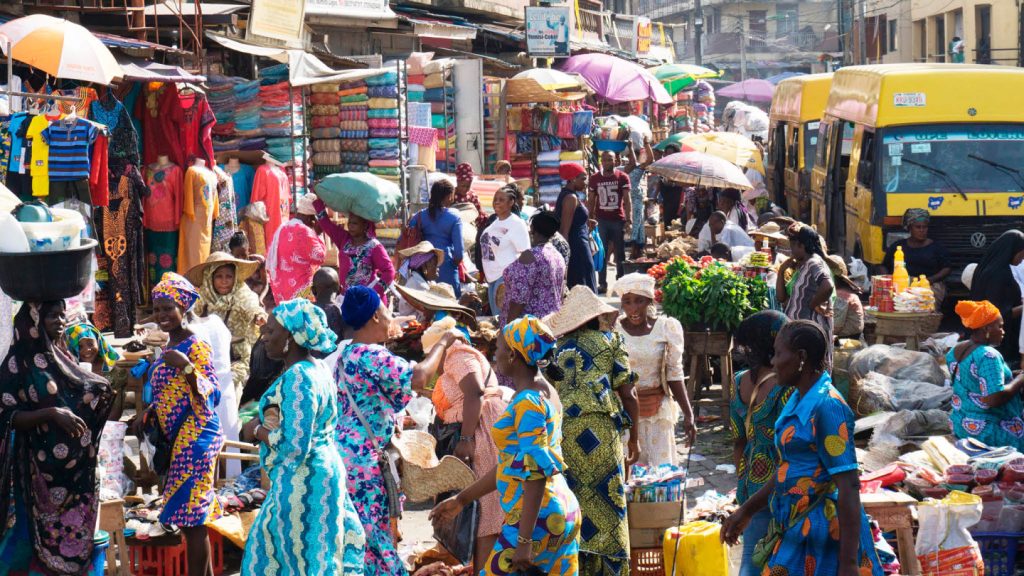
As Africa’s largest economy, Nigeria continues to present vast investment opportunities in 2024. With its dynamic markets and evolving industries, investors can tap into key sectors poised for significant growth and high returns. Here are the top 5 sectors shaping Nigeria’s economic landscape: 1. Real Estate & Construction Nigeria’s rapid urbanization and increasing housing deficit make the real estate sector one of the most promising investment avenues. Opportunities abound in residential developments, commercial spaces, and smart city projects. The growing middle class and expanding urban areas create a robust demand for modern housing and infrastructure. For investors looking to explore real estate in Africa, Nigeria is a prime destination. 2. Agriculture & Agribusiness Agriculture remains a cornerstone of Nigeria’s economy, contributing significantly to GDP and employment. Investors can capitalize on agro-processing, mechanized farming, and high-value export crops like cocoa, cashew, and sesame. With government incentives and advancements in agricultural technology, the sector offers scalable and sustainable investment opportunities. 3. Technology & Innovation Nigeria’s tech ecosystem is experiencing unprecedented growth, earning Lagos the title of the “Silicon Valley of Africa.” Fintech, e-commerce, edtech, and healthtech are leading the charge, attracting both local and international venture capital. The increasing internet penetration and digital adoption across industries make this sector a lucrative investment frontier. 4. Energy & Renewable Resources As energy demand continues to rise, Nigeria is embracing renewable energy solutions, particularly solar, wind, and hydro projects. The push for off-grid power solutions and natural gas expansion presents viable investment opportunities. With the government prioritizing energy reforms and sustainability, this sector is set for exponential growth. 5. Healthcare & Pharmaceuticals The healthcare industry in Nigeria is undergoing a transformation, driven by increased health awareness, improved regulations, and private sector involvement. Key investment opportunities include private hospitals, local pharmaceutical manufacturing, and telemedicine solutions. The demand for quality healthcare services and innovative medical technologies is higher than ever. Why Invest in Nigeria? Nigeria’s youthful population, vast natural resources, and strategic geographical location make it a top investment destination. Whether you’re looking to invest in real estate, technology, agriculture, or energy, the potential for high returns is immense.
2024 Round-Up: Strategic Investment Insights for African Markets
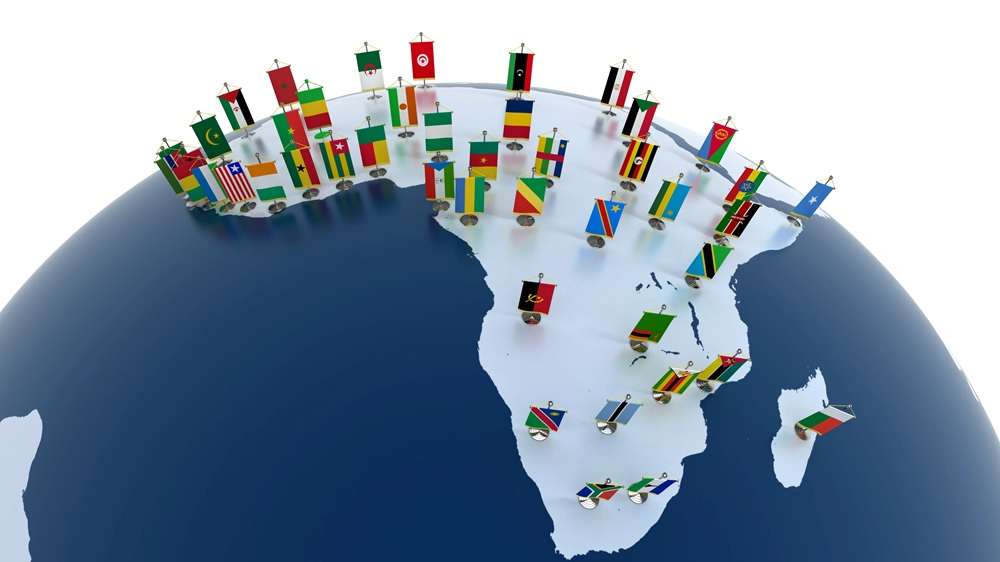
Welcome to the latest edition of our financial insights! This report uncovers global economic trends and explores the vibrant investment opportunities in Africa. Our mission is to equip you with the knowledge and strategies needed to thrive in today’s dynamic investment landscape. Let’s delve into the key developments shaping the world of finance and investment. Global Economic Overview As 2025 begins, global economic trends reflect the lingering challenges of 2024. The IMF reported a global growth rate of 3.0% for last year, highlighting the strain on advanced economies like the U.S. and the Eurozone due to persistent inflation and elevated interest rates. While inflation showed signs of easing in some regions, such as the U.S., growth momentum remained subdued. Emerging markets, particularly in South Asia, demonstrated relative stability, driven by robust domestic demand and infrastructure investments. Sub-Saharan Africa showed resilience with a GDP growth rate of 3.5%, though risks from political instability and fluctuating commodity prices continued to pose challenges. Global energy markets remain volatile, driven by geopolitical tensions, including conflicts in the Middle East that pushed oil prices above $90 per barrel in late 2024. Meanwhile, China’s slower-than-expected economic recovery disrupted global trade, significantly affecting raw material and manufacturing supply chains. Impactful Global Events in December 2024 Local Economic Insights Nigeria continues to face macroeconomic challenges, with inflation rising to 27.5% by the end of 2024. Exchange rate volatility persisted, with the Naira trading between ₦1,634 and ₦1,708 per USD. The Central Bank of Nigeria (CBN) raised its monetary policy rate to 28% in an effort to combat inflation and stabilize the Naira. The Dangote Refinery reached full operational capacity in late 2024, a development expected to reduce Nigeria’s reliance on imported refined petroleum products and ease foreign exchange pressures. However, infrastructural deficits and high production costs continue to constrain the non-oil sectors. Investment Opportunities in Africa Closing Thoughts In a year marked by economic uncertainty, African markets remain rich with opportunities for savvy investors. By leveraging USD-linked investments, high-yield fixed-income securities, and alternative assets, investors can effectively manage risks while positioning themselves for sustained growth in 2025. Ready to seize the opportunities in African markets? Join our investment community today! Stay strategic, stay prosperous.
Advocacy: Tax Compliance in Nigeria
On September 17, the federal government asked Nigerians who own bank accounts to obtain and complete self-certification forms, to be issued to them by their banks. And why? The statement read, “The forms are required by the relevant financial institutions to carry out due diligence procedures in line with Income Tax Regulations 2019”. Expectedly, social media was set on fire. A day after, the federal government backtracked on this statement, saying the notice did not apply to everyone. The drive for tax revenue continues… Oh you must know the quote already. That one about death and taxes? Benjamin Franklin? Yeahhh. The only things certain in life are death and taxes. Somebody defined taxes as a debt owed by citizens of a country to their government. Hardcore eh? Taxes may be direct or indirect. Regardless, remittance is essential to governments and their budgets. Yes, this is why the government takes it personal. Tax compliance refers to the extent to which the tax paying population of a particular country complies with its tax laws and policies. Ideally, tax compliance involves timely and complete fulfillment of tax obligations. According to the World Bank Group, the importance of taxes and tax compliance lies in the need for a sustainable source of funding for social programs and public investments. Eventually contributing to a country’s economic growth and development. In Nigeria, tax compliance is increasingly a big deal. Well, it should be. Crude oil accounts for 70% of the country’s revenue base. And oil revenues are falling, so the country is going broke. Meanwhile, tax evasion has had its way for too long. In 2018, the Federal Inland Revenue Service (FIRS) found that over 6,700 billionaires do not pay taxes in Nigeria. Haha, wave your hand if you did not know we had that many billionaires in this economy. Also, the informal sector of the economy remains largely untaxed. In 2019, the FIRS generated about N5 trillion, relatively high numbers, but N3.7 trillion below its target for the year. Nigeria’s tax to GDP ratio is a sad 6%. To offer comparison, the tax to GDP ratio in a prosperous country like Norway is a staggering 54.8%. And so our country remains the poverty capital of the world. Over 82.9 million Nigerians are poor. In the second quarter of 2020, the nation’s economy contracted by -6.10 percent. As it stands, the country will have to borrow record numbers to fund its 2021 budget. The need to raise tax revenue is iminent. Tax compliance must improve. But how? What are the factors responsible for non-compliance in Nigeria? Well, the demographic makeup of the country, citizens’ unresponsive behavior towards taxation, as well as the faulty tax system. Nigeria needs to revisit (and modify) the policies and laws governing the tax system. Perhaps they should be more just. Wealthy Nigerians are barely taxed. Perhaps an introduction and enforcement of a luxury tax will improve the situation? Then, tax registration and payment processes should be made simpler. Perhaps some more digitization should be employed. It is tax, why should payment be difficult? Also, tax laws should be made easy to understand. People should be able to ascertain their obligations easily. However, the most important point is transparency in the tax administration system. The Federal Inland Revenue Service should be made accountable to the public. The government too. The social contract theory is not a superstition. The payment of taxes should cajole the government into doing the needful for citizens. If people see their revenue being put to productive use, they will be more responsive! They should be.
Policy Round Up: Electricity Tariffs and Miscellaneous
Nigeria needs to generate between 40,000MW and 60,000MW of Electricity, but generation is less than 5,000MW. You know the gist. The common consequence is that businesses run on generators thereby increasing the cost of production. On 31st August, our ”What’s New?” informed you that the government had approved an increase in electricity tariffs, even though the National Assembly had promised that this would not happen until 2021. Well, this post expands on the issue further. Wanna learn more? Keep reading! How tariffs work. If you are a metered consumer in Nigeria, the cost of electricity depends on 4 factors. First, your location. There are 11 electricity distribution companies (DisCos) operating in Nigeria. Second, your tariff class. Every electricity customer belongs to one – residential, commercial, industrial, special and street lights – based on projected energy consumption. Third, tariff rate. This depends on your tariff class. Finally, the quantity of energy consumed in KWh. The hike in electricity tariffs. A planned increase in electricity tariff was initially scheduled for April 1st, 2020. This was postponed to July 1st in order to give stakeholders time to design a service based tariff system. When a service based system works, it ensures that the customers receiving high quality of service would pay agreed rates with the distribution companies, while those receiving poor service would not experience any tariff increase. The increase in tariff and a commencement date of 1st July were both approved by the Nigerian Electricity Regulatory Commission (NERC). By June however, Premium Times Newspaper reported that DisCos were accusing the NERC Of dissociating itself from the increase in tariff. Well, you cannot blame the NERC. En masse, Nigerians have condemned the tariff increase. The most common argument is that the electricity situation should improve first before any increase. Meanwhile, proponents of the tariff (e.g. Discos) counter this argument by explaining that the electricity situation cannot improve unless consumers pay the appropriate prices for electricity. This way, investors will make enough money to reinvest in their infrastructure. Well, August came and ta-dah! Hike approved! Why is the hike happening? Business Day Newspaper did a useful breakdown. The estimated cost of electricity in Nigeria is about N53/kWh. Meanwhile, distribution companies only charge N31/kWh. The difference of N22/kWh is a subsidy which cost the Federal Government of Nigeria N560 billion in 2019 (7% of the budget!). If this subsidy continues, it will total N610 billion in 2020 even though energy produced is the same. The most prominent argument is that this recurrent expenditure used to cover the tariff shortfall could be used to improve other sectors such as healthcare and education. In addition, an analysis corroborated by the World Bank showed that 60% of this subsidy is actually used to cover electricity consumption for the richest 10% of the population. Meanwhile, 90 million of the poorest Nigerians have no access to power. Nigeria cannot fund the subsidy for this year. The National Assembly only approved N80 billion for tariff subsidy. The government planned for 40% of the 2020 tariff subsidy to come from a $750 million loan the World Bank agreed to grant. The World Bank then made this loan contingent on the removal of the subsidy regime, calling it retrogressive and exploitative of the poor. Removal of subsidies is the rave now. The African Development Bank and the World Bank have made it clear that they would not extend more facilities until retrogressive subsidies are removed. When DisCos (distribution companies) met with the federal government, their projection was that 80% of the increase would be borne by the richest 20% of the population. There would be no change in tariff for the poor, and customers who receive less than 50kW of energy a month will not experience any increase. Well, let’s see. More talk. Citizens have labeled the hike as unnecessary considering the poor state of the economy and growing poverty among Nigerians. Some have gone as far as protesting. On September 10, Vanguard Newspaper reported that armed policemen in Lagos arrested 14 protesters and 4 journalists who were protesting the hike. NGOs have since condemned this action. A striking discovery is that Discos are yet to provide prepaid meters for all consumers. If this is the case, then most consumers would still be subjected to estimated billing. A service reflective electricity tariff would then be implausible. Also, many Nigerians are not connected to electricity at all. It may be time for the government to support the off-grid space in the power sector. Since September 7 however, the President has personally defended the hike. He explained that there was no provision for subsidy in the revised 2020 budget. He then said his administration was pursuing a mass metering program to provide meters for over 5 million Nigerians. Regarding those who are not connected to electricity, “We are providing solar home systems to 5 million Nigerian households (impacting up to 25 million individual Nigerians) in the next 12 months.” In conclusion, he said, “Protecting the poor and vulnerable, while ensuring improved service in the power sector, is also a major priority for the Government.” Well, these fingers are crossed again.

